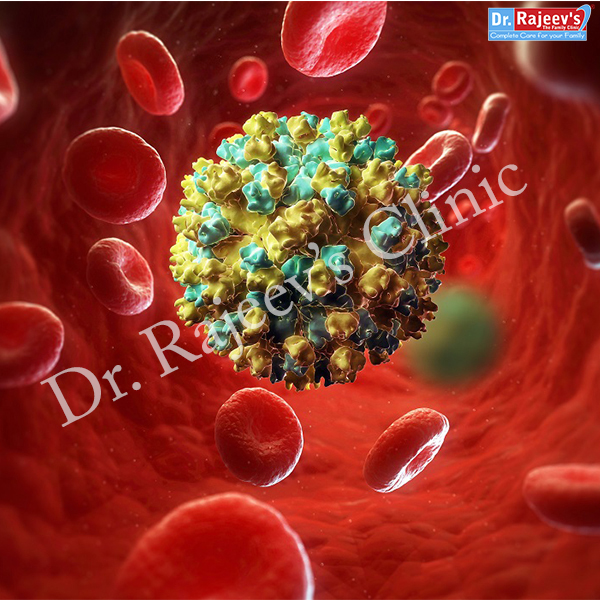

Hepatitis is a general term meaning inflammation of the liver. Hepatitis is a disease that can be caused by a variety of different viruses such as hepatitis A, B, C, D and E. Since the development of jaundice is a characteristic feature of liver disease, a correct diagnosis can only be made by testing patients' sera for the presence of specific viral antigens and/or anti-viral antibodies.
Hepatitis E (HEV) was not recognized as a distinct human disease until 1980. Hepatitis E is caused by infection with the hepatitis E virus, a non-enveloped, positive-sense, single-stranded RNA virus.
Although man is considered the natural host for HEV, antibodies to HEV or closely related viruses have been detected in primates and several other animal species.

HEV is transmitted via the fecal-oral route. Hepatitis E is a waterborne disease, and contaminated water or food supplies have been implicated in major outbreaks. Consumption of fecal contaminated drinking water has given rise to epidemics, and the ingestion of raw or uncooked shellfish has been the source of sporadic cases in endemic areas.
There is a possibility of zoon tic spread of the virus, since several non-human primates, pigs, cows, sheep, goats and rodents are susceptible to infection. The risk factors for HEV infection are related poor sanitation in large areas of the world, and HEV shedding in feces.
Person-to-person transmission is uncommon. There is no evidence for sexual transmission or for transmission by transfusion.
The incubation period following exposure to HEV ranges from 3 to 8 weeks, with a mean of 40 days. The period of communicability is unknown. There are no chronic infections reported.
Hepatitis E virus causes acute sporadic and epidemic viral hepatitis. Symptomatic HEV infection is most common in young adults aged 15-40 years. Although HEV infection is frequent in children, it is mostly asymptomatic or causes a very mild illness without jaundice that goes undiagnosed.
Typical signs and symptoms of hepatitis include:
Since cases of hepatitis E are not clinically distinguishable from other types of acute viral hepatitis, diagnosis is made by blood tests which detect elevated antibody levels of specific antibodies to hepatitis E in the body or by reverse transcriptase polymerase chain reaction (RT-PCR). Unfortunately, such tests are not widely available.
Hepatitis E should be suspected in outbreaks of waterborne hepatitis occurring in developing countries, especially if the disease is more severe in pregnant women, or if hepatitis A has been excluded. If laboratory tests are not available, epidemiologic evidence can help in establishing a diagnosis.
Surveillance and control procedures should include
As almost all HEV infections are spread by the fecal-oral route, good personal hygiene, high quality standards for public water supplies and proper disposal of sanitary waste have resulted in a low prevalence of HEV infections in many well developed societies.
For travelers to highly endemic areas, the usual elementary food hygiene precautions are recommended. These include avoiding drinking water and/or ice of unknown purity and eating uncooked shellfish, uncooked fruits or vegetables that are not peeled or prepared by the traveler.
Hepatitis E is a viral disease, and as such, antibiotics are of no value in the treatment of the infection. There is no hyper immune E globulin available for pre- or post-exposure prophylaxis. HEV infections are usually self-limited, and hospitalization is generally not required.
As no specific therapy is capable of altering the course of acute hepatitis E infection, prevention is the most effective approach against the disease. Hospitalization is required for fulminate hepatitis and should be considered for infected pregnant women. homeopathy plays an efficient role in hepatitis cases by improving the immunological levels.
Homeopathic Treatment of Hepatitis-E
By the help of homeopathic medicines, the cases of hepatitis E can be controlled very well, these medicines work to the immunological level.
Homeopathic treatment can help in delaying the complications and the disease process is kept under check with symptomatic relief. The general health is improved very well on these homeopathic medicines without any side-effects. Taking homeopathic medicines for longer duration helps improve immunological levels and the disease can be kept under control.
homeopathy is strongly recommended in cases of hepatitis. These medicines have proved the efficacy in treating a wide range of viral infections.
RL31